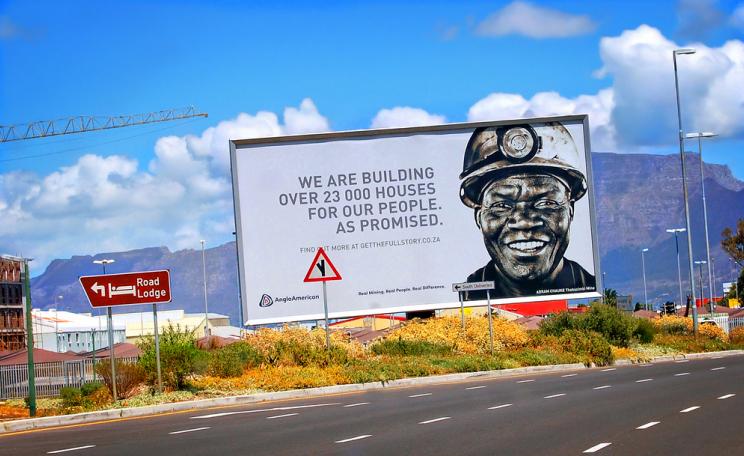Granting a prospecting licence would open up a veritable Pandora's box - Francois du Toit, CEO of African Conservation Trust
Proposals to get fracking started in South Africa first surfaced in 2008 when three multinational oil and gas companies asked for permission to prospect in the Karoo. Those applications are still pending and so whilst to date, fracking has not commenced either in the Karoo or elsewhere in the country those companies anxious to get started have not gone away and if current applications are successful, an initial fracking exploratory phase could start in a matter of weeks.
While oil and gas companies insist on the prospect of job creation, economic growth and energy sovereignty, concerned communities including farmers, conservationists, and environmental activists warn that arable land and water resources would be rapidly depleted if fracking were to go ahead.
Several transnational as well as local companies have registered their interest in prospecting for unconventional gas resources in South Africa but whilst the application to frack the Karoo came to a halt due to a government-initiated strategic assessment that was released earlier this month, there are still sustained efforts to advance with the applications to prospect in large parts of KwaZulu-Natal province, as well as in the Free State and in the Eastern Cape.
A joint report by the Academy of Science in collaboration with the Department of Technology concluded there has not been enough research to date to take an informed decision and in addition, scientists have expressed concern that regulatory oversight for potential fracking might also be insufficient.
Under existing laws, oil and gas companies have to go through three to four separate environmental impact assessments before they can actually start extracting. However, the initial scoping rights have been granted by South African Petroleum Agency (PASA), which considers fracking ‘a viable option' to obtain gas in principle. President Jacob Zuma is also willing to give fracking a chance stating: "We will find practical opportunities to enhance the economic opportunities the shale gas sector has to present."
But even the promised prospect of significant job creation is in doubt following a debate in the recently published Shale Gas report which pointed out the specialist skills set needed for shale gas exploration would be virtually non-existent in the country.
The most advanced exploration application proposing to explore a vast stretch in the Eastern Cape from South of Lesotho to Mount Fletcher is currently under review with PASA. Texas-based Rhino Oil & Gas has submitted an environmental impact assessment that might trigger the first exploration phase in a matter of weeks in and around the Matatiele municipality.
Local residents are concerned not only that the exploratory boreholes might cause harm, but that future fracking operations would wreak havoc to the agriculture and water supply. Matatiele local municipality has identified "Nature, Agriculture and Tourism" as its "investments of choice". And councillors have argued that fracking would be incompatible with the municipality's agenda, an anti-fracking view that is shared by traditional leaders who fear that grazing land and agriculture would also suffer if fracking were to go ahead.
Granting a prospecting licence would open up a veritable Pandora's box - Francois du Toit, CEO of African Conservation Trust
In the pubic consultation process Rhino Oil & Gas - one of the four big players - has admitted the company is not even sure about the potential profitability of going ahead (subject to permission) since there has been no prior exploration of the area. Rhino's report, submitted to PASA, states: "Our application only includes work aimed at determining the presence of a petroleum resource. Approval is not being sought for any work to determine the commercial viability of any such resource.
A maximum of "10 core boreholes" are being proposed as part of this initial exploratory phase whilst additional applications by Rhino in other catchment areas only propose to use equipped airplanes to start the exploration phase. These measures are deemed "non-invasive" however anti-fracking lobbyists debate that it is unfair to discuss the prospecting application on the basis of its limited scope only. As Francois du Toit, CEO of African Conservation Trust, warns the prospecting licence would open up a veritable "Pandora's box"
At five Rhino's public meetings across KwaZulu-Natal a fortnight ago, residents voiced strong opposition towards unconventional gas exploration. Matthew Hemming, an environmental consultant who manages the environmental assessment process, said that those parties attending these meetings to object to fracking are taking the view they would rather "close the door on exploration before it opens."
Notwithstanding declining numbers at last week's meetings (the result of consultation fatigue) the opposition to fracking appears undeterred. A gathering of environmental and community organizations earlier this month in Matatiele, Eastern Cape assembled NGOs, potentially affected communities, and faith-based organizations from around the country. In total, 16 different organizations decided to send delegates to the small town at the foothills of the western formation of the Drakensburg.
Chilling temperatures did not keep delegates from engaging in heated debates over what they consider ‘an assault' on their livelihoods. And in a manifesto that came out of those deliberations at Matatiele, delegates noted "the critical absence of relevant government departments and elected political leadership at public meetings where the exploration proposals are being pushed," concluding that this could amount to a silent endorsement of fracking from the Government's side.
This Author
Jasper Finkeldey is a PhD Researcher at the University of Essex and a Visiting Scholar at University of KwaZulu-Natal







